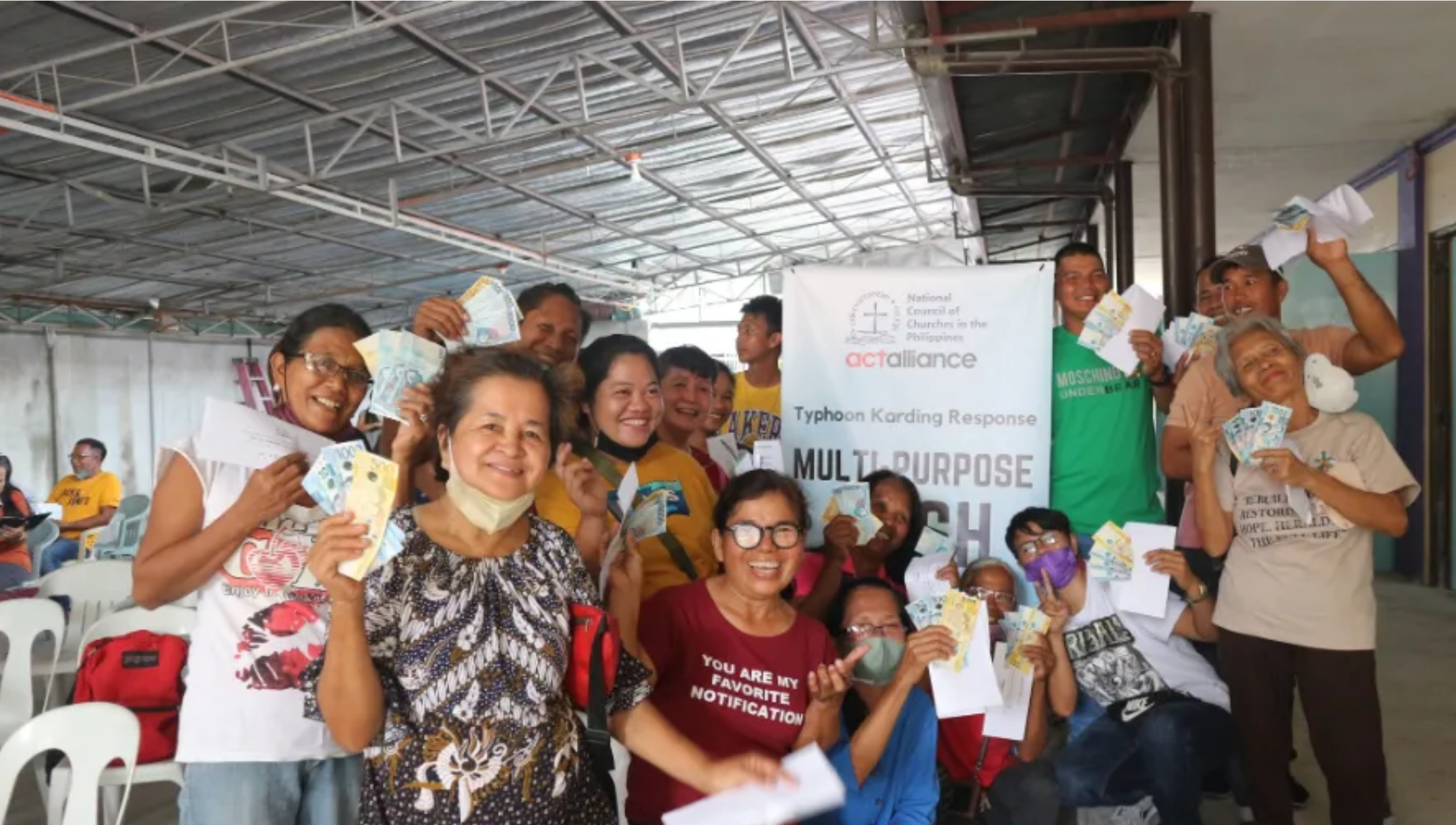By Nerisse Klaire Kassey Pamaran, National Council of Churches in the Philippines (NCCP)

Anamarie Rivera, a mother of four, had just given birth to her youngest daughter when last September’s Super Typhoon Noru hit her hometown of Jaen, Nueva Ecija in the Philippines. “We went to my sister-in-law’s house when the winds got stronger”, she says. “I was only able to get my kids out … I wasn’t able to save any of my belongings.” Anamarie’s house was made from light materials with a makeshift roof of galvanized iron, a type of housing that is common
in Filipino communities living in poverty.
The typhoon struck several provinces in the northern part of the Philippines, causing widespread damage not only to housing, but to farms and the livelihoods of farming communities. “It completely destroyed our crops,” says Ashley Arante, whose mother worked in the rice fields. “We had a hard time meeting our daily expenses afterwards.”
The stories of Anamarie and Ashley illustrate just two of the struggles endured by millions of Filipinos affected by the climate crisis. Climate change impacts are measured not only by the strength of typhoons, but also by the lasting impact they have on already-vulnerable communities.
In the case of Super Typhoon Noru, aid came from the most rural of local churches through to international agencies. ACT Alliance responded to the immediate needs of typhoon victims through the National Council of Churches in the Philippines (NCCP). But given the typhoon’s extensive and lasting damage, organizations can only do so much.
On average, at least twenty typhoons make landfall in the Philippines every year. Five of these will be destructive. This destruction has become such a normal occurrence in marginalized Filipino communities that they are being praised worldwide for their resilience and optimism in otherwise hopeless scenarios.
According to the Global Climate Risk Index 2021, the Philippines is one of the countries that is most vulnerable to the long-term impacts of climate change. The country must address the loss and damage induced by the climate crisis and implement adaptation and mitigation measures to achieve a people-centered, low-carbon future.
The Philippines’ contribution to world greenhouse gas (GHG) emissions is minuscule compared to the G20, yet studies show that the country’s emissions increased by 114 percent from 1990 to 2017, largely due to the energy and industry sectors. The Philippines needs to take genuine steps towards climate crisis mitigation. This includes banning practices such as deforestation, illegal mining and logging, and plastic waste pollution, which are known to harm the environment. The country must also address the vulnerabilities of most Filipino people, who live in poverty, and strengthen their adaptation capacities at the local level.
At the global level, the NCCP believes that the climate crisis must be addressed by holding major GHG contributors accountable for the impacts of climate change. The climate crisis is “a consequence of the historical impact of the patterns of consumption and industrialization by what are now the wealthiest and so-called ‘developed’ nations in the world,” they say.
To be accountable, the wealthiest nations must use climate finance, technology transfer, and capacity building to support the most vulnerable countries, such as the Philippines. They must also keep their own carbon footprint in check.
Nerisse Klaire Kassey Pamaran is a youth volunteer with the National Council of Churches in the Philippines (NCCP), an ACT member.
